This content originally appeared on HackerNoon and was authored by Zakyboy
NotebookLM—Google’s AI-driven research and note-taking platform—has quickly become a standout in the productivity arena. By letting you import PDFs, slide decks, and other notes, it enables you to query the material in plain language. Powered by Google’s Gemini model, it generates summaries, extracts key takeaways, and spots patterns so you can absorb critical information in a flash.
As capable as NotebookLM is, it isn’t the only option. You might need broader file-type support, built-in audio recording, features fine-tuned to your workflow, or a different pricing structure. Whatever the motivation, looking at alternative tools can help you land on the ideal solution for your research and note-taking style.
Below, I’ll highlight six standout substitutes—ranging from AI-enhanced assistants to classic note apps with a modern upgrade—that can boost your productivity and streamline how you manage information.
Nouswise
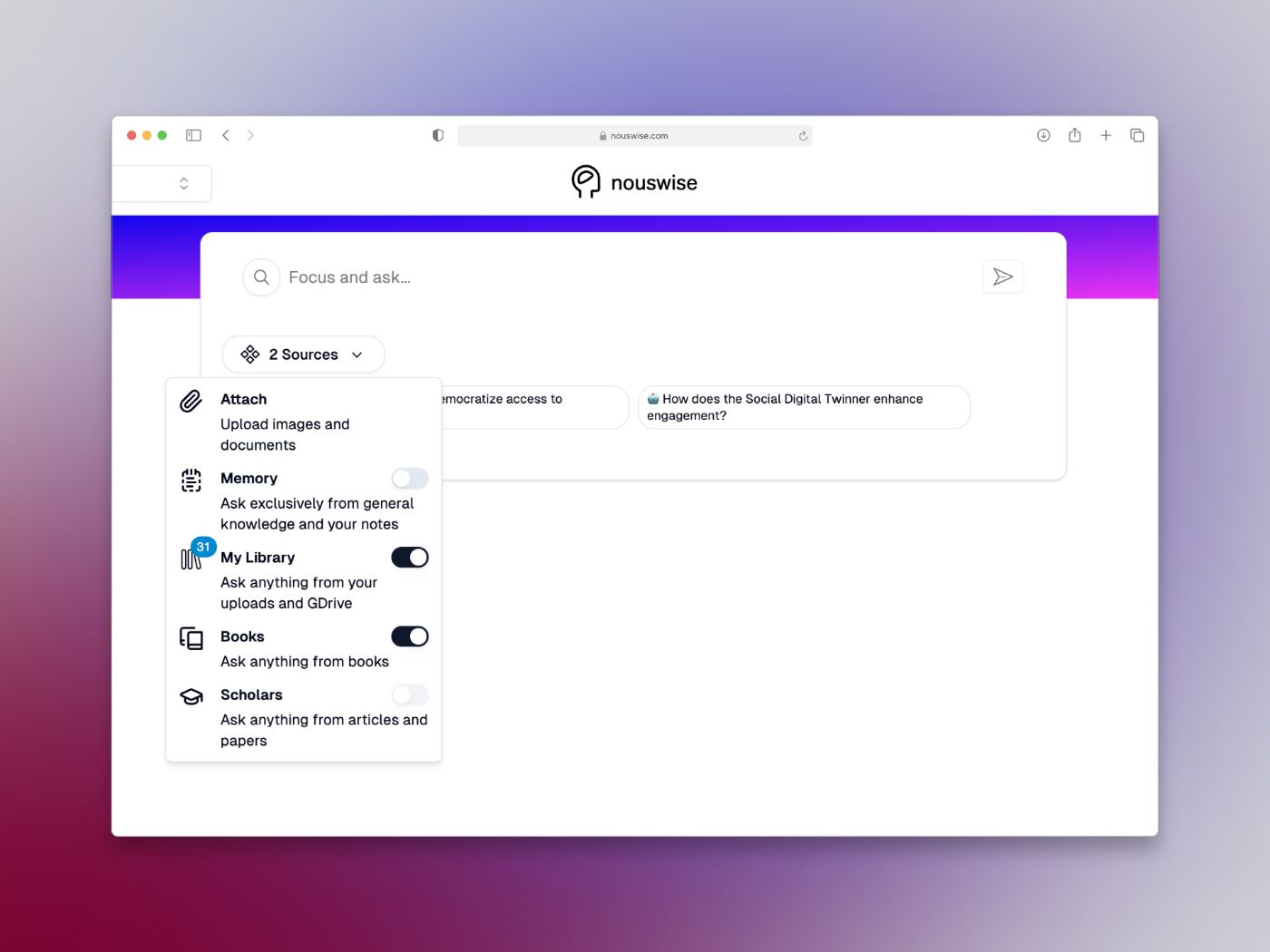
Nouswise is by far the closest AI tool that can replace Notebooklm fully, it has all capabilities of podcast, query from documents with citations, writing assistant and so on. This agent AI assistant reinforces learning with custom quizzes, graphs, charts and succinct explanations that leverage active recall and spaced-repetition principles.
Highlights:
● Unlimited Files: Upload limitless PDFs, images, tables, graphs—virtually any file type is accepted.
● Source-cited answers: The AI scans your materials and returns responses with clickable citations for easy verification.
● Strong privacy: Your content remains private by default; sharing is entirely opt-in.
● Contextual search: It “remembers” everything you’ve added to the knowledge base, so queries become increasingly precise and personalized over time.
● Writing assistant: it provides a built-in note editor, eliminating the need to switch to other apps.
● Intellectual humility: It declines to answer if the required information is not provided.
Ideal for: Students, researchers, and professionals who need comprehensive, reliable insights from large information pools.
\
Evernote
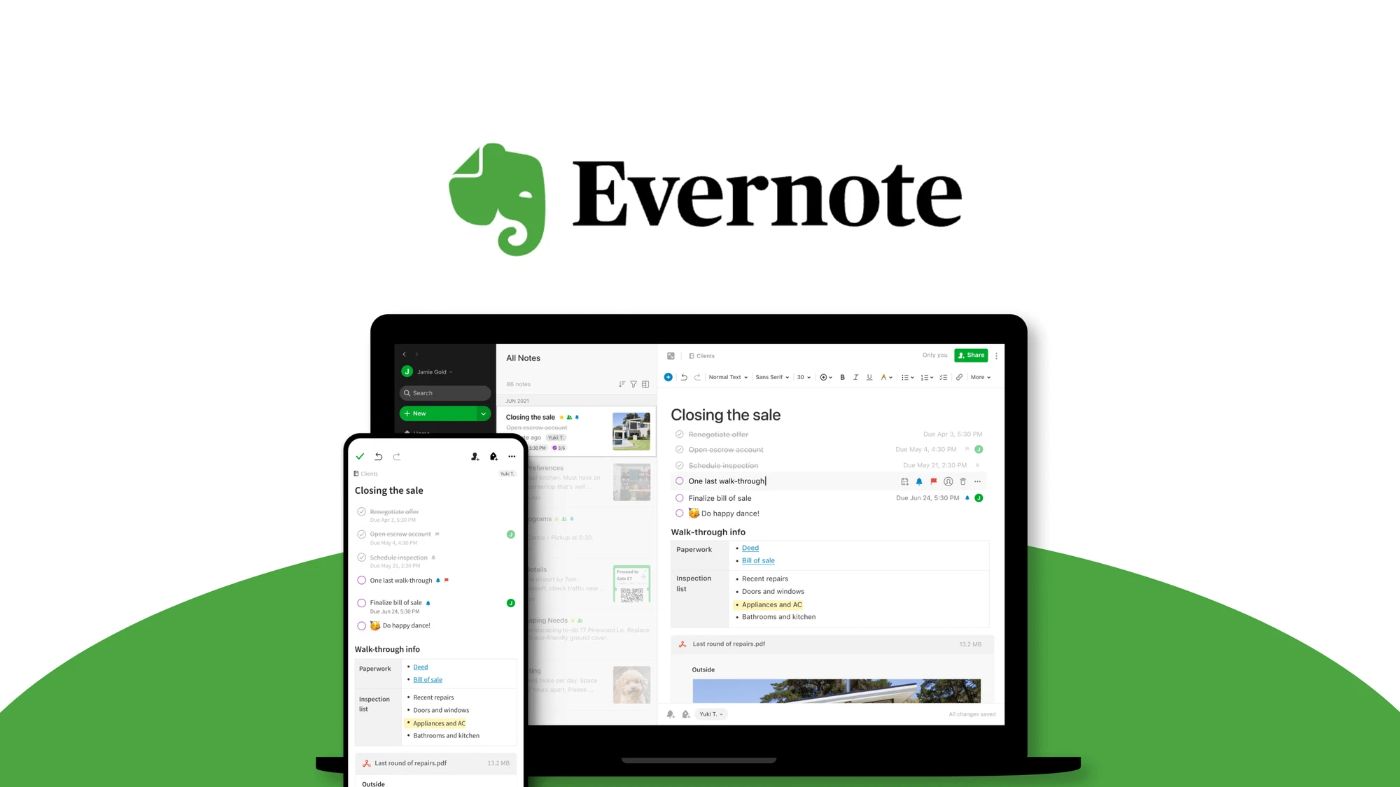
Evernote, created by the Evernote Corporation, is a veteran in the note-taking and organization space. Available on nearly every platform, it lets you capture, categorize, and sync everything from plain text and photos to voice memos and web clippings. Its standout strength is a robust search engine with built-in OCR, so it can surface words buried inside images or handwritten scans in seconds.
Key differentiators:
● Powerful search with optical character recognition
● Version history and the ability to restore earlier notes
● Full offline access to selected notes and notebooks
● Customizable templates and system-wide keyboard shortcuts
Ideal for: Students, researchers, professionals—anyone who must wrangle multiple content types and keep them readily accessible.
Why it shines as an alternative: Evernote’s versatility, cross-platform syncing, and advanced search make it a strong choice for comprehensive note-taking, research collection, and light project management across both Apple and Microsoft ecosystems.
Obsidian
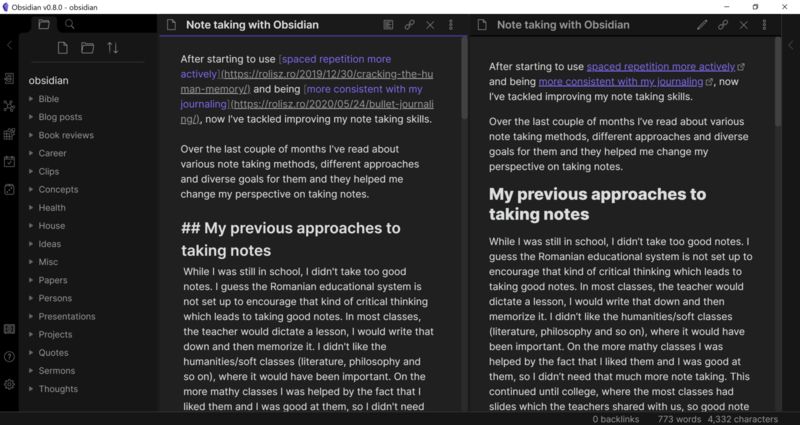
Obsidian is a robust, locally-stored knowledge base that builds on a simple folder of Markdown files. Emphasizing idea interconnection, it visualizes links in an interactive graph and can be extensively tailored through a rich ecosystem of community plug-ins and themes. Because everything lives on your own drive, privacy-minded users retain complete ownership of their data.
Distinctive capabilities:
● All notes saved locally
● Bidirectional links with an interactive graph view
● Deep customization via plug-ins and themes
Ideal for: Researchers, authors, and anyone who wants a highly customizable, local-first system for managing knowledge.
Why it stands out as an alternative: Obsidian’s combination of offline storage, powerful linking, and limitless customization makes it perfect for users who prioritize privacy and a personalized workflow.
Notion
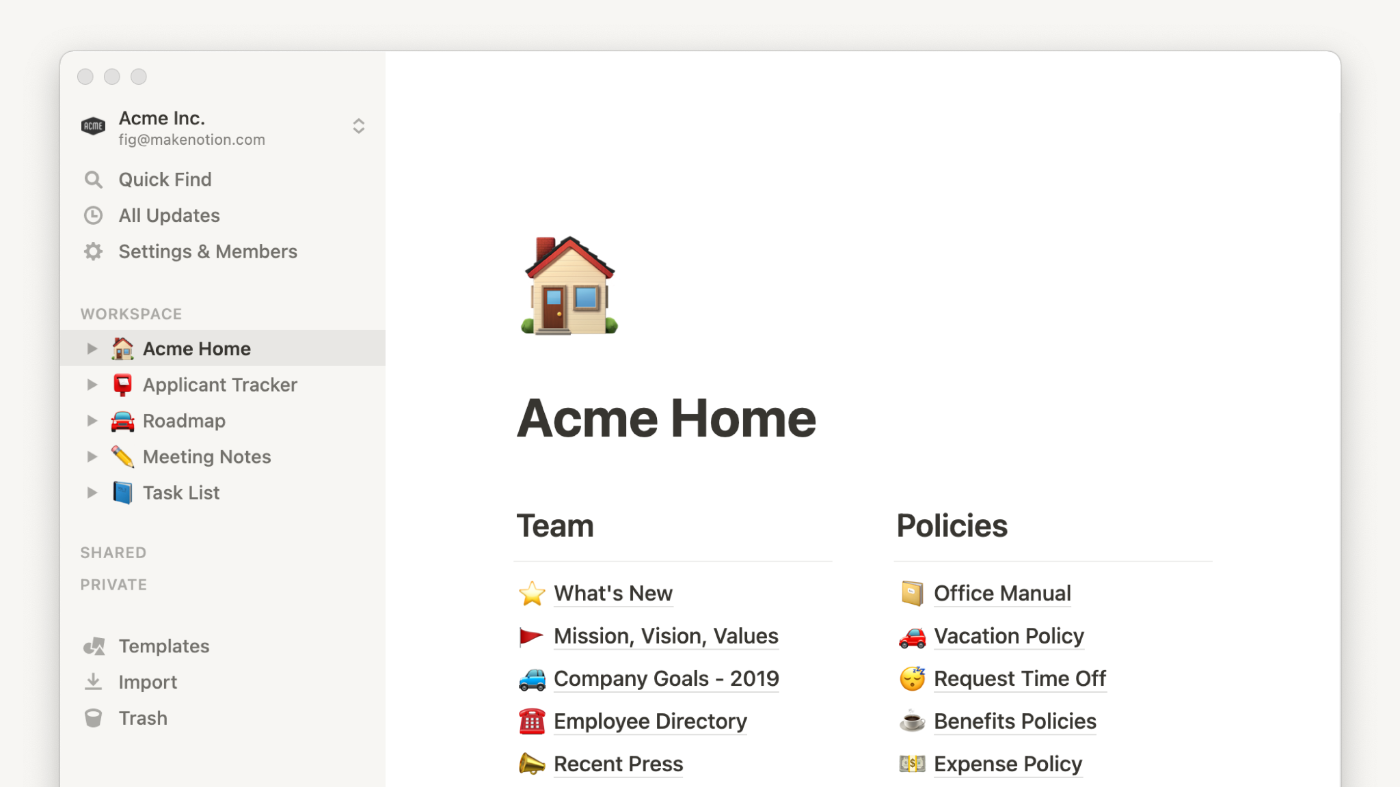
\ Notion serves as a single, highly adaptable hub for notes, tasks, wikis, and structured data—equally favored by individuals and teams.
Stand-out capabilities:
● Unified workspace: Merge notes, to-dos, wikis, databases, calendars, and forms in one collaborative environment.
● Notion Mail: A built-in Gmail client offering auto-labels, reusable email templates, and meeting-scheduling tools.
● Notion Calendar: Syncs with Google Calendar and Apple iCloud, ties events to pages or database records, and centralizes time management inside Notion.
● Automations & templates: Add no-code automations to databases, create pages with drag-and-drop forms or grids, and tap into thousands of community and official templates.
Drawbacks to note:
● Free-tier limits: 1,000 shared blocks, 5 MB file cap, seven-day version history, and up to ten guest collaborators.
● Patchy offline use: While offline mode exists, it can be unreliable and may restrict full editing when you’re disconnected.
Perplexity AI
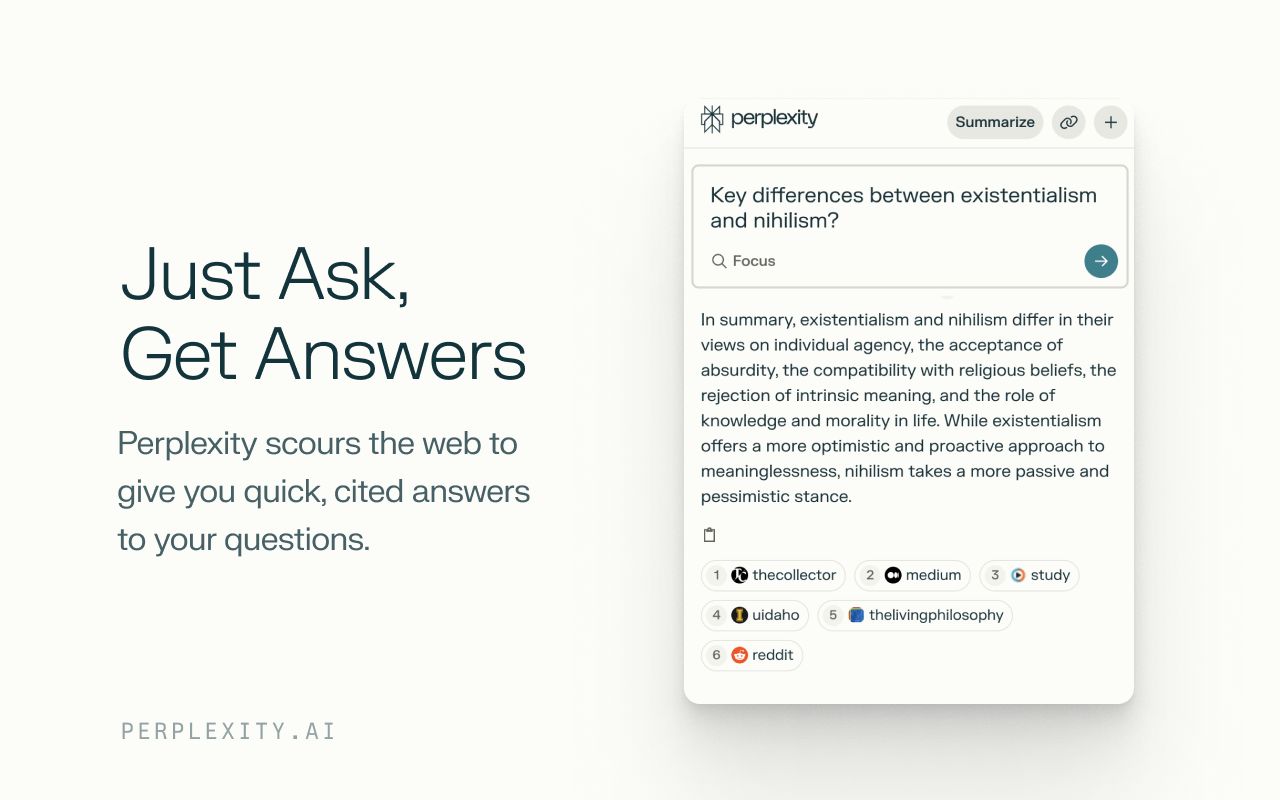
Perplexity AI functions as a conversational search engine that pulls up-to-the-minute information on demand. Though it isn’t a conventional note-taking platform, it pairs well with any note workflow by supplying rapid, in-depth answers that can be dropped straight into your own docs or reports. Users can upload research papers, chat with the AI about them, and keep asking follow-up questions to explore a subject from every angle.
Distinct advantages:
● Live, real-time data retrieval
● Chat-style interface powered by an AI assistant
● Seamless follow-up questioning for deeper exploration
Ideal for: Students, researchers, and professionals who need quick, reliable insights from large information pools.
Why it shines as an add-on: Perplexity AI enriches research and note-taking routines by structuring information and delivering concise, AI-generated explanations and summaries.
Mem AI
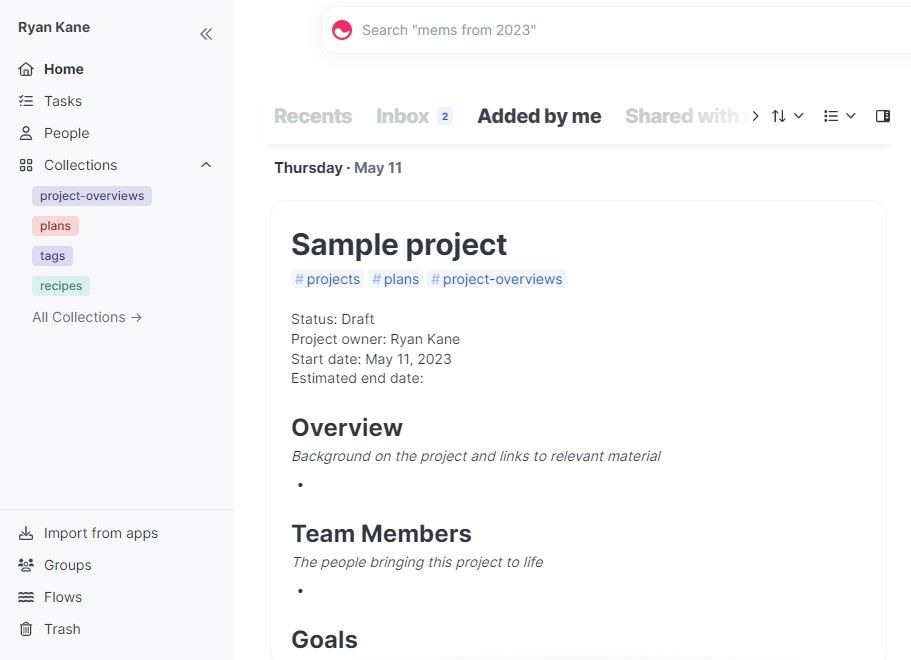
\ Mem AI is a note app that streamlines knowledge capture and retrieval with built-in artificial intelligence. It auto-tags, cross-links, and surfaces related content, while shared workspaces let teammates co-create and refine a collective knowledge base—setting it apart from more traditional note tools.
Stand-out capabilities: • AI-driven capture & organization
• Automatic tagging plus smart, contextual linking
• Real-time collaborative workspaces
Ideal for: Researchers, knowledge workers, and teams who want an AI-boosted note-taking workflow.
Why choose it: If you’re after NotebookLM-style intelligence—automatic structure, suggestions, and connections—Mem AI delivers those smart features in a dedicated note environment.
Conclusion
Picking a NotebookLM substitute isn’t just an app swap—it’s a chance to upgrade how you capture, organize, and apply knowledge. Every tool on our list brings its own edge that can make you work smarter.
Students wrestling with research, professionals steering complex projects, or teams needing friction-free collaboration will each find a match. From Nouswise’s “long-term memory” to Obsidian’s web-style note links, these options can lift your productivity and knowledge flow.
Whittle your shortlist to two or three contenders, activate their free trials, and test them on real tasks. The keeper is the one you’ll open every day. Prioritize anything that streamlines your workflow and resist feature-comparison rabbit holes.
Your ideal note-taking and knowledge-management ally is a trial away. Experiment now and see how the right tool reshapes your work and learning—your future self will thank you.
This content originally appeared on HackerNoon and was authored by Zakyboy
Zakyboy | Sciencx (2025-08-21T06:54:17+00:00) 6 Best NotebookLM Alternatives in 2025: AI-Powered Research & Note-Taking Tools Compared. Retrieved from https://www.scien.cx/2025/08/21/6-best-notebooklm-alternatives-in-2025-ai-powered-research-note-taking-tools-compared/
Please log in to upload a file.
There are no updates yet.
Click the Upload button above to add an update.
